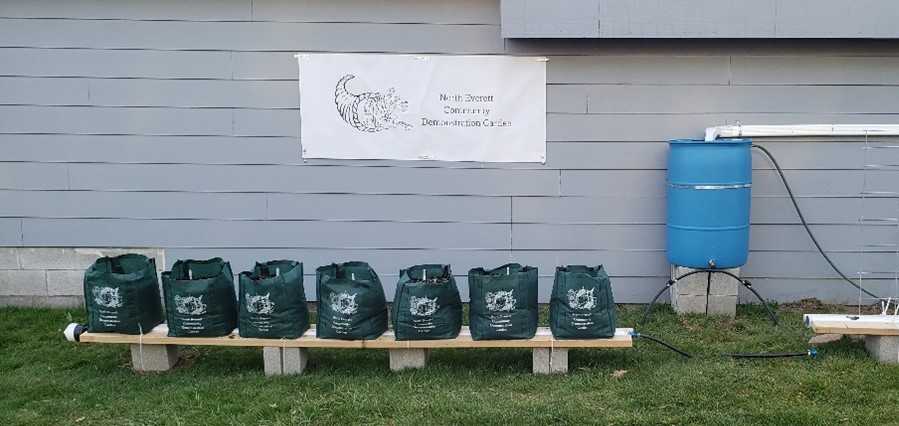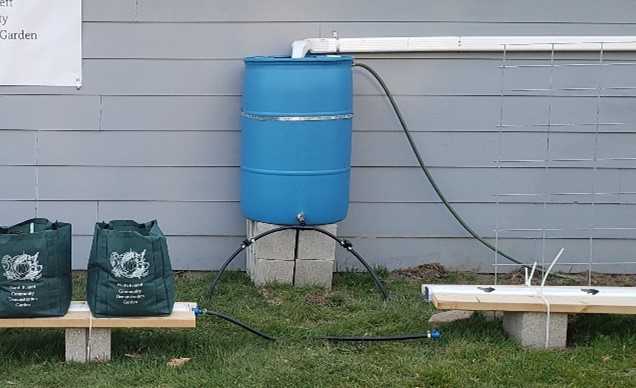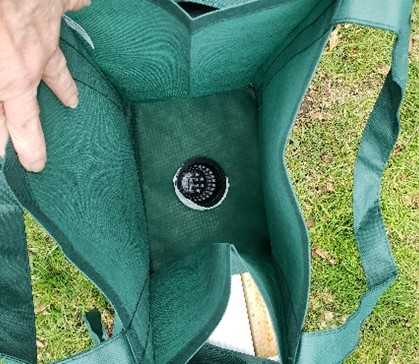Combining her interests in community health and in gardening, Dr. Nancy Foote has started a demonstration garden near CHC’s Everett-North Clinic. Dr. Foote, a physician who has been with CHC for almost eight years, is concerned about the poor nutrition provided to people who are dealing with food insecurity. “The food banks often provide only high calorie, high carbohydrate, high sugar foods, and many people can’t afford to buy fresh produce,” she explains.
An avid YouTube video learner, Dr. Foote found information about “grow bag gardening,” which is inexpensive and works in small spaces. The garden setup she designed includes 14 grow bags with a different crop in each bag. Dr. Foote notes that “we have an ideal growing environment in the Pacific Northwest, with a long season that allows for 3 crops per season.”

Cool weather crops, like peas, lettuce, spinach, carrots, Swiss chard, broccoli, and cauliflower can be planted in the spring and again in late summer. Warm weather crops like tomatoes, peppers, summer and winter squash, beans, potatoes, and corn will grow well between June and August/September. Using a square foot garden plan allows dense planting in each bag, with four heads of lettuce, eight spinach plants or 14-16 carrots in one bag. One potato will produce about 45 potatoes using sequential “hilling” of the plant (plant the seed potato low in the bag; then when the plant is a few inches tall, add more soil to near the top of the stem and repeat until the bag is full.)

One of Dr. Foote’s patients located a free 55-gallon food-safe plastic barrel, which is a now a rain barrel and allows the garden to be self-watered. The neighbors of the clinic agreed to have the garden placed on the strip of land between their garage and the alley. The gentleman kindly created the pipe to divert the rainwater from one side of the garage roof into the rain barrel. A closed-system downspout prevents mosquitoes and algae formation. Each of the bags has a hole in the bottom with a net cup covered by an old sock. The net cup sticks out of the bag and fits into a hole cut in the downspout. The net cup is filled with the same dirt as the bag and brings water into the bag, drawing the roots deeply down.

The grow bags are non-woven and allow air pruning of the roots, thereby preventing the plants from becoming root bound. “For the summer, I hope to put some kiddie pools in place and show how to grow more potatoes and some corn”, says Dr. Foote. “It is possible to grow 40 ears of corn in one kiddie pool!”
Depending on the weather and the germination rate of the seeds, look for crops ready to harvest from early May through June at the North Everett Community Demonstration Garden, on the south end of the alley behind the Everett-North clinic. If you’re interested in starting your own grow bag garden and would like some help, you can email northeverettgarden@gmail.com
